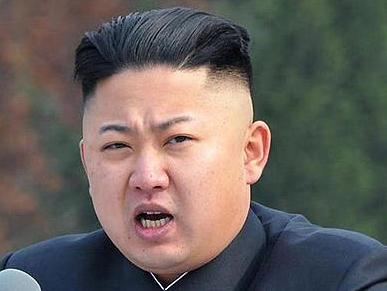The confrontation between the United States and North Korea has reached a critical point. Unlike his predecessors, President Trump does not have the luxury to kick the can further down the road. He must act quickly and he must act decisively.
The North Korean enigma is complicated by Pyongyang’s informal nuclear alliances with Pakistan, Iran, Syria, and to a lesser extent with China. Based on well-documented materials by the National Council of Resistance of Iran (NCRI) and corresponding intelligence reports by the Israeli Mossad, Saudi Arabia, the United Arab Emirates, and Jordan, the cooperation between North Korea and Iran in developing ballistic missile and nuclear technology has been so close that the WMD programs of both states must be considered a single entity.
Indeed, after Iran signed the Joint Comprehensive Plan of Action on July 14, 2015, in Vienna, Austria, with the permanent members of the UN Security Council and
Germany, Tehran promptly outsourced its nuclear program to Pyongyang, according to the NCRI. Already the two states have jointly assisted Syria to pursue its nuclear ambitions. Moreover, the government of the Philippines presented captured documents proving that as early as 2003, the Moro Islamic Liberation Front, at the time closely affiliated with Al-Qaeda, paid two million dollars to North Korea for guns, ammunitions, and grenades. The purchase of mini-submarines failed.
In the Middle East, Iran paid North Korea to supply rockets and missiles to Hezbollah in Lebanon as early as 2004. North Korea also helped Hezbollah to build sophisticated networks of tunnels and bunkers along Lebanon’s border with Israel. Hamas, the Sunni terror organization in Gaza got a share of North Korea’s military assistance program too. Just this year, the leadership of Hamas publicly thanked Pyongyang for its political and military support in the fight against Israel.
Kim’s diabolical scheme is to serve as a supply hub for authoritarian regimes and terrorist organizations to relentlessly challenge the United States and its allies. Yet, threatening the United States brings Kim Jong-un close to committing national suicide. But there is no reason to think that he will risk the demise of the regime and the
utter destruction of North Korea. For this reason, there is a face-saving exit for this Oriental despot. The solution for the Trump Administration is to use the stick of military retaliation and the carrot of free trade – a notion that has been gaining support throughout the continent. Essentially, Kim Jong-un and his underlings are well aware of the necessity of economic progress. Based on multiple reports from North Korean defectors and the South Korean media, the majority of the people in the north are aware of the political and economic misery of their country. The same sources also state that Kim Jong-un has already embarked on some modest economic reforms that have made life for the average citizen slightly more bearable. Considering these developments and the yearnings of the peoples of Asia for political stability and economic integration, the proponents of dictatorships and despotisms would be hardly pressed to find many sympathizers for their anti-reform and anti-cooperation policies. After all, economic progress and integration have accounted for the rise of the majority of Asian states as economic powerhouses.
Beyond the Korean conflict, there is the notion of equal stakes in a peaceful Asia. The threat of possible nuclear confrontation must enhance the desire of all states in the continent to secure peace and stability for all. The
United States must play a leading role in these efforts. Accordingly, the White House and the relevant departments of the executive branch must present China and Russia with a wide array of economic, financial, military, and diplomatic measures that can be taken by the United States and its allies to convince both Moscow and Beijing of the negative consequences for siding with Pyongyang.
Simultaneously, the Trump Administration must convey to the rest of the world that it stands on internationally accepted principles, specifically on the principle of non-intervention. Such a foreign policy position would signal to everybody that the United States does not intend to take unilateral actions against North Korea. In the same vein, it would telegraph to Russia and China that the United States is flexible and ready to negotiate the terms of an enduring solution in the Korean Peninsula. In addition, the United States must declare that it desires peace between the two divided states of Korea. The alternatives are escalating tensions, bloody conflicts, civil war, and wholesale destruction. For its own sake and for the sake of global stability, the only reigning superpower cannot be interested in such outcomes.
